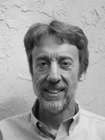 Just two years old, Berkeley Law’s environmental law center continues to show an urgency tackling issues. The latest evidence: its hiring of Steve Weissman and a successful conference entitled “California and the Future of Environmental Law and Policy.”
Just two years old, Berkeley Law’s environmental law center continues to show an urgency tackling issues. The latest evidence: its hiring of Steve Weissman and a successful conference entitled “California and the Future of Environmental Law and Policy.”
On April 10-11, the California Center for Environmental Law & Policy (CCELP) assembled a top roster of government officials, scholars and legal practitioners. In a series of well-attended programs, the conference examined California’s role in leading national and global policy development, and in crafting innovative solutions to daunting problems.
Weissman, CCELP’s new associate director for energy law and policy, moderated a dynamic panel discussion on “Renewable Energy & Energy Efficiency: from California to the World.” Other topics included preserving California’s ocean and coastal resources, the state’s regulatory response to climate change, the potential and limitations of litigation to further climate change policy, the water supply and biodiversity future of the Sacramento-San Joaquin Delta, integrating transportation and land use policy, and reducing and managing hazardous wastes.
“The conference improved our understanding of vital issues and of how California can best influence the nation and other countries,” Weissman says. “It advanced the conversation among state environmental leaders on both the scope of our challenges and the range of solutions. It also provided a comprehensive update on the progress we’re making within the state.”
Setting an Example
California’s environmental dilemmas are widely seen as a microcosm of those faced nationally and internationally. As a result, the state’s solutions may prove influential well beyond its borders. Environmental advocates hope examples include AB 32, which calls for greenhouse gas emissions to be reduced to 1990 levels by 2020, and a related executive order that emissions be 80 percent below 1990 levels by 2050.
Energy use plays a key role in climate change. At the conference, panelists focused on developing low-carbon fuels for vehicles, energy efficiency within utility programs, and a renewable energy program for utilities.
“California has one of the most ambitious targets in the nation in requiring that utilities provide 20 percent of their power from renewable sources by 2010,” says Weissman, who is finishing his work as a n administrative law judge at the California Public Utilities Commission (CPUC) and will soon join CCELP full-time. “Just about half the states have some kind of target, and we’re still pushing to develop a national standard through federal legislation.”
But creating that national standard has met resistance from states that lack California’s breadth of renewable resources—including solar energy, geothermal power, wind power, biomass, and several innovative methods of converting the ocean’s power. However, Weissman emphasizes that “every state has renewable energy options. Implementing a national standard would force each state to set priorities to tapping those resources and for making trades with its neighbors.”
Energized about Energy
An attorney and an environmental mediator, Weissman created the CPUC’s alternative dispute resolution program and has drafted legislation on energy, air quality, solid waste management, and air quality. He was legal director for the Local Government Commission—an environmental and social policy think tank that assists area municipalities—and wrote policy guidebooks on toxic air pollutants, recycling, and land use. Weissman has also chaired the city of Berkeley’s Parks and Recreation Commission and Solid Waste Commission, and teaches summer courses at Vermont Law School’s renowned Environmental Law Center.
“We at CCELP and Berkeley Law are quite excited about Steve’s arrival,” says CCELP executive director Richard Frank. “His nationally-recognized expertise and reputation in the fields of energy and environment law and policy, and the enthusiasm he brings to his new position, demonstrate CCELP’s abiding commitment to these critical issues.”
With Weissman as part of the team, CCELP will strive to unify constituencies and to adopt an oversight role with energy policies and programs around the state. Toward this end, it has begun working with a bumper crop of campus experts at the UC Berkeley Energy Institute, the Haas School of Business, the Goldman School of Public Policy, and the student-led Berkeley Energy & Resources Collaborative.
“These organizations all have exceptional people with a firm understanding of our energy challenges,” Weissman says. “We want to proffer the law school as a hub for pulling together a lot of professional disciplines around campus on environmental issues, and energy is a great example. With more of Berkeley Law’s talented students getting involved, CCELP is in a great position to show how many important reasons there are to work on these issues.”
— By Andrew Cohen